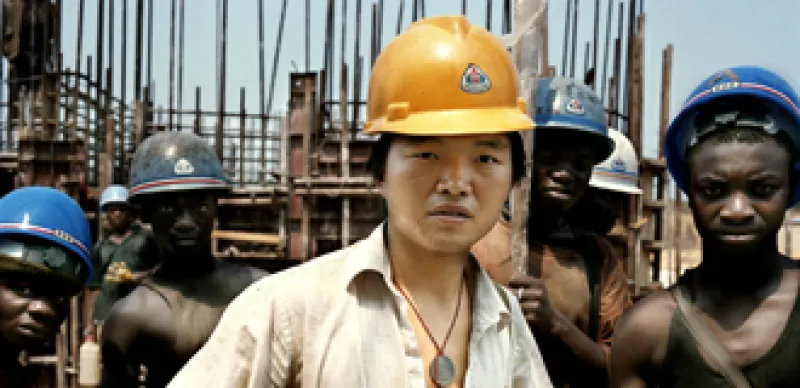
EXCLUSIVE! PLEASE CLEAR RIGHTS AND PRICE BEFORE PUBLICATION! Republic of the Congo / Imboulou dam / 06.2007 On the building site of the Imboulou dam, Republic of the Congo, 200km north of the capital Brazzaville. In the foreground a Chinese worker of the China National Mechanical & Equipment corporation (CMEC) company, which in 2001 has obtained the contract. With its 120 megawatts, this power plant will double the national production of electricity and will give light to a large part of Congo. 400 Chinese technicians and qualified workers supervise a Congolese workforce of a thousand man, paid 3 dollars a day, that disappear as fast as they can find a better paid job. This, in part, explains the dam's construction delay that has to be absolutely terminated by 2009, the year of the next Congo elections. CMEC requires the Chinese workers to wear yellow and the Congolese blue hardhats. © Paolo Woods / Anzenberger
Paolo Woods/Paolo Woods / Anzenberger

